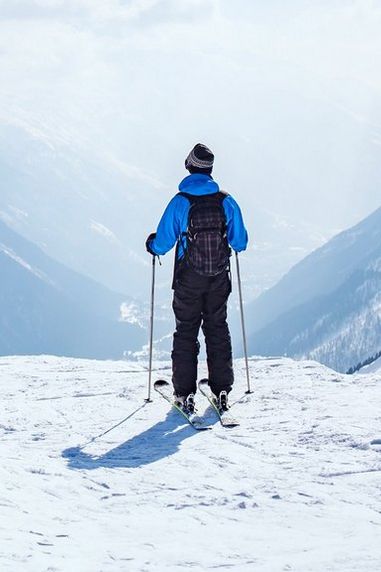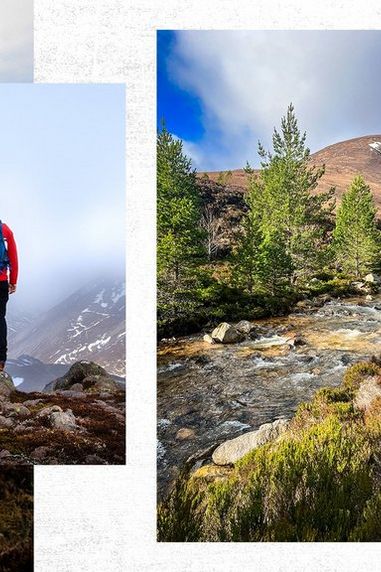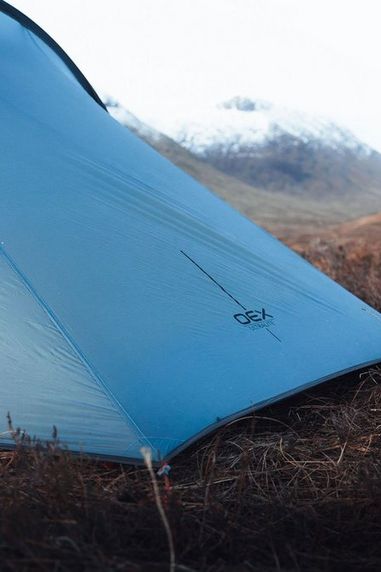
I'm still surprised by my ability to quickly conjure up excuses why I can't do the washing up.
A shade over 30 years and I'm still able to find elaborate reasons. Recently a stiff neck was blamed on the kitchen sink being too low for my (slightly over average) height and the fourteen minutes I had to stand there washing up has resulted in an injury. I'm sticking to this story, and can probably spin it out for a week whilst I erm... recover.
I'm not a fan of washing-up when I go backpacking either and endeavour to minimise the scale of this particular task by reducing the number of pots and pans that I take. Over the years I've whittled down my backpacking kit down to mere essentials. The genuine reason for this (more genuine than just just not liking washing up) is that when back-packing I'm going to have to carry my stuff. All of it. All day. ...and the day after. It's obvious of course, but travelling light has many benefits. The first is that it takes less effort, which means you can walk further, or faster and arrive at the campsite earlier. Less effort means I'm less exhausted and in turn this makes me happier.
I started out my explorations in the outdoors as a teenager and learned this the hard way. Huge rucksacks filled with enough supplies to last a week in the wilderness were laboriously carried, slogging over the Lakeland fells. Trips were of course, scarcely longer than one or two nights and I have a clear memory of putting tins of food back in the cupboard(!) after hauling them around the Lakes for 2 days.
These days I travel light (and it's dried food, not tins) and my knees thank me for it. It's surprising how little stuff one needs to have a nice time in the outdoors, and living for a day or two with just the bare essentials is liberating and enhances the reasons why we spend time in the outdoors – to get away from the stress of modern life, to relax and take exercise in whichever of Mother Nature's playgrounds we find ourselves in.
So anyway, I'm planning a short wild camping trip. I want to practise and perfect some night navigation, so will head off to some remote part of Snowdonia to spend the night wandering around in the dark for an hour counting my steps and following the arrow on my compass.

Here's my camping kit: there's everything I need, apart from clothing. I've got essentials like a one man tent (Blacks Octane 1 Man), large-ish 60-litre rucksack (Blacks Alpine Aqua), sleeping bag and an Vango Ultralite self-inflating sleeping mat. A first aid kit and some bits like a few cable ties and a meter of duct-tape for emergency repairs are added. A spare torch, tissues and a chocolate bar also live permanently in the lid of my rucksack. I indulge in some gadgets too: I have the new Garmin Oregon 600 GPS to accompany the map and compass, and I'm currently playing with a gadget that measures the wind speed (...this is how geeks have fun).
The main event of cooking and eating is usually where I have found myself carrying too much. If you have a stove, then a sachet of soup is perfect for lunch and they are light and compact. I take a few oat-cakes to compliment and bulk up the carbs for the day. This is better than attempting to carry sandwiches for a day or two, they just get squashed. I'll pick up some pasta-and-sauce type of thing for dinner and there's a tray of flapjack to cover supper, breakfast and daytime snacks.
The Jetboil stove is great for this kind of camping as the main pot works really well as a pan, a kettle and a bowl and a cup in one. Now, if we include the Light my Fire Spork then that totals...... yes, just 2 items to wash up! If only I could get away with that at home.
I'll let you know how the trip goes, but one thing is for certain – I won't be taking the kitchen sink. In the meantime here are some tips to make camping and backpacking trips on the lighter side.
- Practise at home first. Work out what you need and what you don't.
- Try some 1-pot & 1-spoon cookery to work out what food you should take, to make tent-life easier.
- There is always a tendency to fill whichever rucksack we use, so save the 100-litre monster for the week-long trips.
- Spend time packing your kit well. You should get the rucksack nicely balanced with most weight towards the top rather than the bottom.
- Split the heavy stuff around your buddies and share cooking equipment where possible.
- One of the more impossible tasks is to convince your girlfriend that she doesn't need to take hair straighteners. But that's easier said than done.
About the author: Rob Shepherd (or 'The Shepherd' as we call him) lives in Bethesda, a small town on the edge of Snowdonia. A keen climber, caver, mountaineer, hiker and camper, he also volunteers with his local Mountain Rescue Team. Come back soon to read about his trip and for an expert review of the new Garmin Oregon 600.



